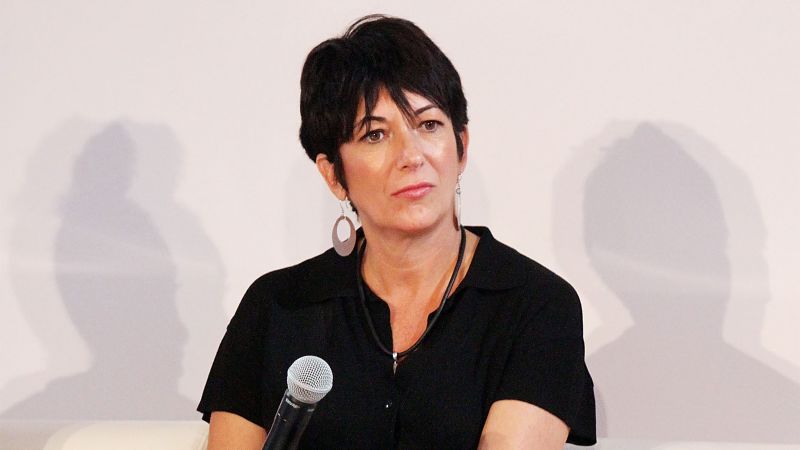World
Ghislaine Maxwell’s Transfer to Texas Prison Camp Raises Concerns

Ghislaine Maxwell’s recent arrival at the federal prison camp in Bryan, Texas, has generated significant tension within its all-female minimum-security units. Maxwell, who was convicted of sex trafficking minors in 2021, is now housed in a facility deemed less restrictive compared to her previous location in Florida. However, her presence has reportedly disrupted the camp’s previously relaxed atmosphere.
While her attorney claims that she is in a safer environment, the situation remains challenging for Maxwell. Sources familiar with conditions at the Bryan prison indicate that she may not enjoy the same privileges as other inmates, such as participation in puppy training programs or work release opportunities. More than six individuals who have worked with or represent inmates at the facility suggest that Maxwell’s notoriety has made her unpopular among her peers.
According to Sam Mangel, a prison consultant with clients at the camp, “She’s not making any friends,” emphasizing the difficulties high-profile inmates often face in such settings. The inmates at Bryan, primarily non-violent white-collar offenders, have been advised by staff to exercise caution when discussing Maxwell. Mangel described the atmosphere as “radioactive,” indicating that the tensions surrounding her arrival have significantly altered the dynamics within the camp.
The impact of Maxwell’s transfer is illustrated by the case of Julie Howell, an inmate who expressed her discontent with Maxwell’s relocation. Following her comments, prison officials removed Howell from a puppy-training class and subsequently transferred her to a federal detention center in Houston. Her attorney, Patrick McLain, noted the chilling effect Maxwell’s presence has had on other inmates, stating, “Nobody’s going to say anything about Ghislaine Maxwell now, are you kidding?”
As of now, the exact details of Maxwell’s day-to-day life at the prison camp remain unclear. Two inmates released from FPC Bryan in the past year report that they have not heard updates regarding her condition or which unit she occupies. One of these former inmates, Jill Ford, expressed concern over Maxwell’s presence during visitation times, as many inmates have children who frequently visit.
Maxwell is currently serving a sentence of 20 years, with an expected release date set for 2035. Her transfer from a more restrictive facility in Tallahassee to the Bryan camp has raised questions about the Justice Department’s rationale and the potential advantages she may receive in her new environment.
Controversial Transfer and Its Implications
Maxwell’s attorney, David O. Markus, has defended her transfer, stating that it was necessary for her safety. In a post on X, he expressed surprise at the criticism directed toward the move, arguing that it reflects a misunderstanding of the need for humane prison conditions. He mentioned that Maxwell was in serious danger at her previous facility, suggesting that her transfer was a justified response to those concerns.
The Bureau of Prisons (BOP) has not publicly commented on the specifics of Maxwell’s transfer or the internal designations that allowed it. This unusual move has captured the attention of lawmakers, with Democratic Senator Sheldon Whitehouse formally requesting additional information regarding the decision.
Despite the more lenient environment at Bryan, Maxwell’s access to certain programs may be restricted. For instance, the Southern Careers Institute, which offers a certified nursing assistant training program, has strict criteria for participation. Reports indicate that inmates with specific charges may be barred from applying. Notably, Maxwell would not qualify for the puppy training program run by Canine Companions, which explicitly excludes individuals convicted of crimes against animals or minors.
Currently, there are seven puppies in the program, paired with 15 inmate handlers. The training process lasts from eight weeks to 17 months, during which inmates teach the dogs various tasks to assist people with disabilities. Canine Companions CEO Paige Mazzoni confirmed that Maxwell has not applied for the program and would be ineligible if she did.
Maxwell’s transfer to a minimum-security camp, particularly given the nature of her conviction, is highly unconventional. Such placements are typically reserved for non-violent offenders and those nearing the end of their sentences. This discrepancy has raised eyebrows and fueled ongoing discussions about the standards applied within the federal prison system.
As the situation continues to develop, the reactions from both inmates and the public reflect the complexities of handling high-profile cases within the corrections system. The implications of Maxwell’s transfer may set precedents for how similar cases are managed in the future, highlighting ongoing debates about justice, security, and the treatment of inmates convicted of heinous crimes.
-

 Lifestyle3 months ago
Lifestyle3 months agoLibraries Challenge Rising E-Book Costs Amid Growing Demand
-

 Sports3 months ago
Sports3 months agoTyreek Hill Responds to Tua Tagovailoa’s Comments on Team Dynamics
-

 Sports3 months ago
Sports3 months agoLiverpool Secures Agreement to Sign Young Striker Will Wright
-

 Lifestyle3 months ago
Lifestyle3 months agoSave Your Split Tomatoes: Expert Tips for Gardeners
-

 Lifestyle3 months ago
Lifestyle3 months agoPrincess Beatrice’s Daughter Athena Joins Siblings at London Parade
-

 World3 months ago
World3 months agoWinter Storms Lash New South Wales with Snow, Flood Risks
-

 Science3 months ago
Science3 months agoTrump Administration Moves to Repeal Key Climate Regulation
-

 Science2 months ago
Science2 months agoSan Francisco Hosts Unique Contest to Identify “Performative Males”
-

 Business3 months ago
Business3 months agoSoFi Technologies Shares Slip 2% Following Insider Stock Sale
-

 Science3 months ago
Science3 months agoNew Tool Reveals Link Between Horse Coat Condition and Parasites
-

 Sports3 months ago
Sports3 months agoElon Musk Sculpture Travels From Utah to Yosemite National Park
-

 Science3 months ago
Science3 months agoNew Study Confirms Humans Transported Stonehenge Bluestones









